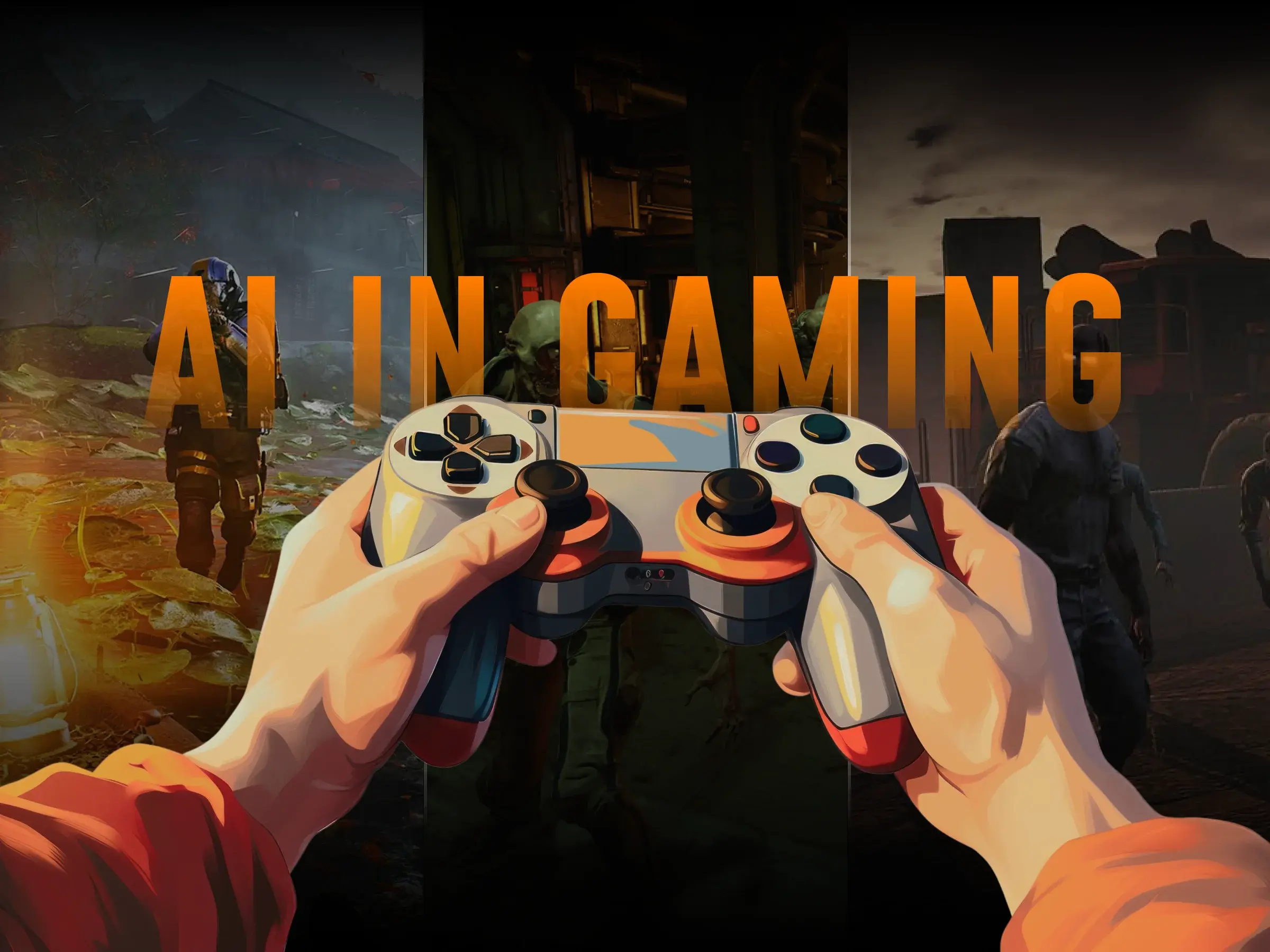Artificial intelligence (AI) has rapidly transformed the landscape of digital entertainment, particularly in gaming and interactive platforms. By simulating human-like intelligence, AI enables dynamic interactions, personalized experiences, and responsive environments that engage users in new and innovative ways. The integration of artificial intelligence (umělá inteligence) technologies enhances immersion, adaptability, and overall satisfaction, allowing players to enjoy richer and more meaningful interactions within digital worlds.
This article explores how artificial intelligence enhances user experience in gaming and interactive digital platforms, focusing on key applications, benefits, and the future of AI-driven experiences.
Introduction to AI in Gaming
AI refers to the simulation of human intelligence in machines, enabling them to perform tasks such as learning, reasoning, problem-solving, and decision-making. In gaming and interactive platforms, AI is used to create intelligent behaviors, responsive environments, and adaptive systems that enhance user engagement.
The adoption of AI in gaming has shifted the focus from static experiences to dynamic, evolving interactions. Players now encounter non-player characters (NPCs) that adapt to their actions, personalized challenges, and environments that respond to individual preferences. These innovations elevate the gaming experience, making it more immersive and engaging.
Dynamic Non-Player Characters
One of the most visible applications of AI in gaming is the development of dynamic non-player characters. AI-controlled NPCs can react intelligently to player actions, make strategic decisions, and exhibit complex behaviors that mimic human opponents or allies.
Dynamic NPCs create a sense of realism, as players are challenged by characters that do not follow predictable patterns. This unpredictability enhances engagement and encourages players to develop strategies, adapt to changing situations, and refine their skills over time.
Personalized Experiences
AI enables personalized experiences by analyzing player behavior and adapting the game environment accordingly. Algorithms can track user preferences, playing style, and skill level to deliver content that aligns with individual needs.
Personalized experiences enhance satisfaction by providing appropriate challenges, customized storylines, and tailored rewards. Players feel more connected to the game when their actions influence the environment, creating a sense of agency and ownership over the experience.
Adaptive Difficulty Levels
Adaptive difficulty is another important application of AI in enhancing user experience. AI systems can dynamically adjust the difficulty of a game based on a player’s performance, ensuring that challenges remain engaging without becoming frustrating.
This balance helps maintain motivation and prevents disengagement. Novice players receive support and guidance, while experienced players encounter increasingly complex challenges, allowing everyone to enjoy the game at their own pace.
Procedural Content Generation
Procedural content generation (PCG) uses AI algorithms to create game content automatically, including levels, environments, quests, and narratives. By generating unique content for each playthrough, PCG enhances replayability and keeps the experience fresh for users.
AI-driven PCG can produce vast, intricate worlds that would be impractical for human designers to construct manually. This capability allows players to explore diverse environments, encounter new scenarios, and enjoy an unpredictable and dynamic gaming experience.
Intelligent Game Design
AI contributes to intelligent game design by analyzing player interactions and identifying patterns that improve gameplay. Developers can use AI insights to refine mechanics, optimize interfaces, and enhance user engagement.
Intelligent game design ensures that games remain balanced, accessible, and enjoyable for a wide audience. By leveraging AI analytics, designers can create experiences that respond to player needs and preferences, fostering long-term engagement.
Enhanced Storytelling
AI has transformed narrative development in interactive platforms by enabling branching storylines and reactive plots. Characters and environments can respond to player choices, creating a sense of consequence and immersion.
Enhanced storytelling allows players to influence the outcome of the narrative, making each playthrough unique. This interactivity increases emotional investment and encourages exploration, as users are motivated to discover alternative story paths and endings.
Realistic Simulations
Simulations in gaming and interactive platforms benefit significantly from AI. Physics, environmental effects, and character behaviors can be modeled more realistically, creating immersive experiences that feel lifelike.
AI-driven simulations enhance user engagement by making interactions with the game world more authentic. Players can experiment with strategies, test consequences, and engage in problem-solving within realistic virtual environments, improving overall satisfaction.
Voice Recognition and Natural Language Processing
AI technologies such as voice recognition and natural language processing (NLP) enable more intuitive interactions between users and digital platforms. Players can communicate with NPCs, issue commands, or navigate menus using natural language, reducing friction and increasing immersion.
Voice-based and conversational interfaces make gaming experiences more accessible and interactive. Users can engage with characters and environments in ways that feel natural and responsive, enhancing the sense of presence and connection within the game.
AI-Powered Recommendations
AI enhances user experience by providing personalized recommendations for games, in-game content, and challenges. By analyzing player behavior, preferences, and social interactions, AI algorithms suggest experiences that align with individual interests.
Recommendations improve user retention and satisfaction by guiding players toward content that resonates with them. This personalization ensures that users remain engaged with the platform and discover new experiences that they may not have found otherwise.
Social and Multiplayer Enhancements
In multiplayer games and interactive platforms, AI contributes to matchmaking, behavior monitoring, and adaptive social interactions. AI algorithms can pair players of similar skill levels, detect toxic behavior, and create cooperative or competitive environments that promote positive experiences.
Social enhancements powered by AI foster community engagement and encourage fair play. By creating balanced and enjoyable interactions, AI improves the overall quality of multiplayer experiences and strengthens user loyalty.
Predictive Analytics for Engagement
Predictive analytics uses AI to anticipate user behavior and optimize engagement strategies. By examining historical interactions, AI can forecast player preferences, potential drop-off points, and areas for improvement.
Predictive insights allow developers to implement timely interventions, such as offering rewards, adjusting difficulty, or introducing new content to maintain interest. This proactive approach enhances user satisfaction and encourages sustained engagement over time.
Accessibility Improvements
AI contributes to making gaming and interactive platforms more accessible to diverse audiences. Features such as adaptive controls, personalized interfaces, and assistive technologies improve usability for players with varying abilities.
Accessibility enhancements ensure that a broader range of users can enjoy the platform, creating inclusive experiences that accommodate different needs. AI-driven accessibility demonstrates a commitment to user-centered design and enhances overall satisfaction.
Emotional Intelligence and Adaptive Responses
Advanced AI systems incorporate emotional intelligence, enabling platforms to respond to player emotions and behaviors. By analyzing in-game actions, communication patterns, and physiological indicators, AI can adapt narratives, challenges, and feedback to suit emotional states.
Adaptive responses create a more empathetic and engaging experience. Players feel understood and supported, enhancing immersion and fostering a stronger connection with the game or interactive platform.
Real-Time Analytics and Feedback
AI provides real-time analytics and feedback that enhance user experience by offering insights into performance, progress, and achievements. Players receive immediate responses to their actions, enabling continuous improvement and strategic decision-making.
Real-time feedback improves learning and skill development while maintaining motivation. By understanding the impact of their choices and actions, users are better equipped to engage meaningfully with the platform.
Future Implications of AI in Gaming
The integration of AI in gaming and interactive platforms continues to evolve, with future advancements promising even more sophisticated and immersive experiences. AI may enable fully adaptive worlds, self-learning NPCs, and hyper-personalized narratives that respond dynamically to individual users.
As AI technologies advance, user experiences will become increasingly tailored, responsive, and emotionally engaging. The ongoing development of AI-driven tools and algorithms ensures that gaming and interactive platforms will continue to provide innovative, engaging, and memorable experiences.
Conclusion
Artificial intelligence plays a transformative role in enhancing user experience within gaming and interactive digital platforms. By enabling dynamic NPC behavior, personalized content, adaptive difficulty, procedural content generation, and intelligent storytelling, AI creates immersive and engaging environments that respond to player actions and preferences.
Voice recognition, natural language processing, predictive analytics, and emotional intelligence further enhance interactivity and satisfaction, ensuring that users remain connected and motivated. Accessibility improvements, social enhancements, and real-time feedback demonstrate AI’s ability to create inclusive, responsive, and meaningful experiences.
As AI continues to evolve, its impact on gaming and interactive platforms will expand, offering increasingly sophisticated and personalized experiences. By leveraging AI, developers can provide users with dynamic, immersive, and community-oriented environments that redefine digital entertainment. The integration of artificial intelligence ensures that gaming experiences are not only engaging but also adaptive, emotionally resonant, and tailored to individual users, setting a new standard for interactive digital platforms.






Leave a Reply